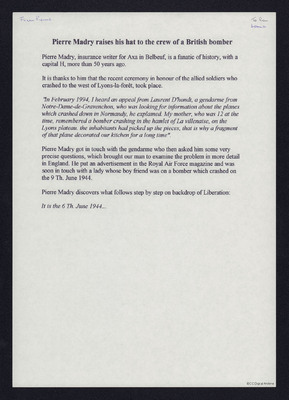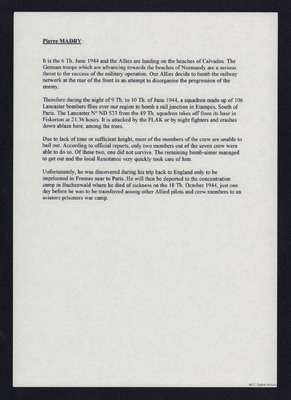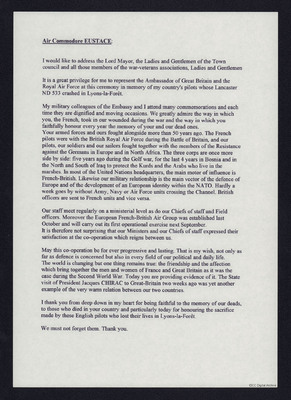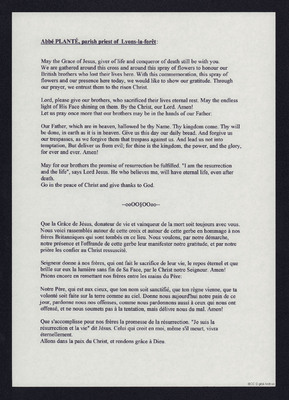Pierre Madry raises his Hat to the Crew of a British Bomber
Title
Pierre Madry raises his Hat to the Crew of a British Bomber
Description
An account of the crash of Lancaster ND533 written by Pierre Madry. It is followed by an address given by Air Commodore Eustace at a ceremony for the crew of the Lancaster.
Finally there is an address by Abbe Plante, parish priest of Lyons-la-Foret, in English and French.
Finally there is an address by Abbe Plante, parish priest of Lyons-la-Foret, in English and French.
Temporal Coverage
Language
Format
Four printed sheets
Conforms To
Publisher
Rights
This content is available under a CC BY-NC 4.0 International license (Creative Commons Attribution-NonCommercial 4.0). It has been published ‘as is’ and may contain inaccuracies or culturally inappropriate references that do not necessarily reflect the official policy or position of the University of Lincoln or the International Bomber Command Centre. For more information, visit https://creativecommons.org/licenses/by-nc/4.0/ and https://ibccdigitalarchive.lincoln.ac.uk/omeka/legal.
Identifier
MHoldenJ1521290-170725-080001, MHoldenJ1521290-170725-080002, MHoldenJ1521290-170725-080003, MHoldenJ1521290-170725-080004
Collection
Citation
“Pierre Madry raises his Hat to the Crew of a British Bomber,” IBCC Digital Archive, accessed October 23, 2024, https://ibccdigitalarchive.lincoln.ac.uk/omeka/collections/document/41110.
Item Relations
This item has no relations.




